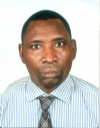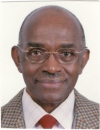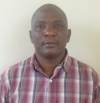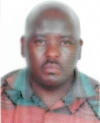George Matovu
ID:
|
FINANCIAL INCLUSION THROUGH SAVINGS AND CREDIT CO-OPERATIVES FOR INCLUSIVE GROWTH IN UGANDA
REFNo: SS409ES
This study is to investigate and understand how financial inclusion through SACCOs can be an effective option for inclusive growth in Uganda. In order to focus on the research problem and provide answers to the research questions, these specific objectives have been identified to guide, and achieve the overall aim of the study:
1.Identify and analyse the socio-economic success factors and barriers affecting SACCOs in deepening financial inclusion to enhance inclusive growth.
2.Understand the role of SACCOs in deepening financial inclusion.
3.Examine the role of financial inclusion in achieving inclusive growth
|
Uganda |
2020-01-13 |
2023-01-13 |
Social Science and Humanities |
|
Degree Award |

|
Silver Bahendeka Karaireho
ID: UNCST-2019-R000876
|
Improving Glycaemic Control for Children and Young People with Type 1 Diabetes in Uganda: Towards a Feasible and Acceptable Self-Care Programme
REFNo: HS519ES
Aims of the Study
The aims of the study are to investigate factors associated with poor glycaemic control of children and young people with T1D attending the CDiC Clinics in Uganda; and to develop and evaluate an individually tailored, age-appropriate management intervention to support decision-making and self-care with a specific focus on insulin management and blood glucose monitoring with available resources. It is an implementation research.
Objectives
This is an implementation research employing a mixed methods research design. In-depth interviews will be conducted alongside unmet needs in managing the diabetes and an assessment of healthcare preferences. Because people often have diverse preferences for healthcare interventions, and preferences tend to change through the course of an illness, we shall also examine whether these preferences are characterized by heterogeneity, and if so, the extent to which this heterogeneity could be explained by relevant characteristics of people with T1D. The study will therefore have the following specific objectives:
1. To determine the prevalence of poor glycaemic control among children and young people with T1D attending CDiC clinics in Uganda.
2. To assess patient factors associated with poor glycaemic control in children and young people with T1D attending CDiC clinics in Uganda.
3. To assess family factors associated with poor glycaemic control in children and young people with T1D attending CDiC clinics in Uganda.
4. To assess health system factors associated with poor glycaemic control among children and young people with T1DM attending CDiC clinics in Uganda.
5. To assess social factors associated with poor glycaemic control in children and young people with T1D attending CDiC clinics in Uganda.
6. To determine the un-met needs in the children and young people with T1D attending the CDiC clinics in Uganda.
7. To assess diabetes care preferences in children and young people with T1D attending the CDiC Clinics in Uganda.
8. To examine whether the diabetes care preferences among T1D are characterized by heterogeneity, and if so the extent to which the heterogeneity could be explained by relevant characteristics of people with T1D or their care givers.
9 To develop a feasible and acceptable self-management intervention.
10. To assess the impact of the individually tailored age-appropriate management intervention T1D treatment on the glycaemic control (HbA1c), in children and young people with T1D attending the CDiC Clinics in Uganda.
11. To determine the frequency of hypoglycaemic episodes with the new self-management program.
12. To assess the effect of the new self-management program on the health-related quality of life (HRQoL) of children and young people with T1D.
|
Uganda |
2020-01-13 |
2023-01-13 |
Medical and Health Sciences |
|
Non-degree Award |

|
Amanda Nambozo Martha
ID:
|
TEMPORAL VARIATIONS, ABUNDANCE AND POPULATION CHARACTERISTICS OF FISH SPECIES IN THE CATCHES OF LIGHT ATTRACTION FISHERY OF LAKE ALBERT, UGANDA
REFNo: NS113ES
General objective
To assess the temporal variations, abundance and population characteristics of dominant fish species in the catches of light attraction fishery in Lake Albert, Uganda Specific objectives
i)To establish the compositions and abundance of fish species in light attraction fishery in the three study sites over a period of one year.
ii)To determine the variation in composition of fish species in the catches over months and seasons of the year.
iii)To establish the trends in population characteristics of the dominant fish species in the light attraction fishery at three study sites over the study period. The population characteristics include;
a)Growth parameters; length, weight, length-weight relationship and recruitment
b)Sex determination, sexual maturity and size at first maturity
c)Breeding periodicity
d)Condition factor
e)Fecundity
iv)To determine the effects of light attraction fishery on its stocks and the stocks of non-target species in the catches.
v)To determine the fishers’ perception towards the exploitation of light attraction fishery of L. Albert.
|
Uganda |
2020-01-13 |
2023-01-13 |
Natural Sciences |
|
Degree Award |

|
AMBROSE KIBUUKA BANYENZAKI
ID:
|
PARENT -TEACHER INTERFACE AND STUDENTS’ LEARNING ACHIEVEMENTS IN RURAL UNIVERSAL SECONDARY EDUCATION SCHOOLS IN SOUTH-WESTERN UGANDA
REFNo: SS373ES
Purpose of the study
The main purpose of the study will be to establish the relationship between parent teacher interface and student learning achievement moderated by parent teacher relationship and parent teacher involvement with specific reference to Universal secondary education. The study will seek to contribute to knowledge by advancing a workable model for parent teacher interface and student learning achievement.
Specific Objectives of the study
The specific objectives of the study will be:-
To analyse the relationship between parent teacher interface and parent teacher relationship
To examine the relationship between parent teacher relationship and parental involvement
To assess the effect of parental involvement on student learning achievement
|
Uganda |
2020-01-07 |
2023-01-07 |
Social Science and Humanities |
|
Degree Award |

|
Saul Muyiggwa Mubanda
ID:
|
Professional Development Practices in Public Universities and Organizational Commitment of Academic Staff: A Case of Makerere and Kyambogo Universities in Uganda
REFNo: SS342ES
Objectives of the research project:
i. To establish the extent to which informal learning opportunities influence organizational commitment of academic staff in Makerere and Kyambogo Universities.
ii. To establish the extent to which formal training opportunities influence organizational commitment of academic staff in Makerere and Kyambogo Universities.
iii. To ascertain the extent to which staff promotions influence organizational commitment of academic staff in Makerere and Kyambogo Universities.
|
Uganda |
2019-12-27 |
2022-12-27 |
Social Science and Humanities |
|
Degree Award |

|
Achilles Katamba
ID: UNCST-2019-R000540
|
Predicting and Preventing Tuberculosis Treatment Failure in an Emerging Co-Epidemic of HIV, Diabetes, and Tuberculosis
REFNo: HS496ES
Primary Objective:
To determine the optimal glucose screening algorithm in a high HIV-TB-burden setting and adapt an evidence-based strategy for implementing TB-DM screening, monitoring, and counseling.
Secondary Objectives:
1. To determine the effect of glucose exposure over course of treatment on adverse TB treatment outcomes.
2. To adapt, pilot, and evaluate an evidence-based complex intervention to screen, monitor, and counsel for TB-DM.
|
Uganda |
2019-12-27 |
2022-12-27 |
Medical and Health Sciences |
|
Non-degree Award |

|
Lydia Nakiyingi
ID:
|
Impact of TB and HIV co-infection on host and microbial gene expression in the upper airway
REFNo: HS502ES
Objectives of the research project: Aim 1: Compare the differences in the microbiota and host gene expression in the upper airway of TB/HIV cases versus HIV only individuals. We will use RNA-seq to profile host gene expression and microbial abundance in TB/HIV and HIV only individuals and identify differences between these two groups.
Aim 2: Develop candidate diagnostic biomarkers for identifying TB/HIV co-infection. We will develop a preliminary nasal biomarker for differentiating TB/HIV from HIV only (controls) using host gene expression, the microbiome, or a combination.
|
Uganda |
2019-12-27 |
2022-12-27 |
Medical and Health Sciences |
|
Non-degree Award |

|
Gorrette Nalwadda Kayondo
ID:
|
Analysis of Quality of Child Immunization Delivery in Rural and Urban Health Care Settings in Uganda
REFNo: HS505ES
a) Design short formatted and de-identified video footage for education, communication and research purpose on immunization delivery in low income settings, based on video footage previously collected under the “Child Immunization Delivery Project, Pathway/Landscape Analysis in Rural and Urban Health Care Settings in Uganda†(Protocol 258).
b)Design and develop a website/web portal to make available video, artefacts, field observation notes and other research data (de-identified data) for non-restricted use, and restricted use (raw data) to people working in public health, innovators, programmers, policy makers.
c) Explore and analyze the quality of child immunization service delivery and compliance with immunization guidelines in rural and urban health care settings, and possible solutions
d) Engaging policy makers in the use of the research findings from the child immunization delivery project for sound development of policies and programs
e) Utilize the de-identified ethno videography data for capacity building, communication and charitable global health activities in maternal newborn and child health policy development and program implementation.
|
Uganda |
2019-12-27 |
2022-12-27 |
Medical and Health Sciences |
|
Non-degree Award |

|
Cara Ebert
ID:
|
Impact evaluation of two youth skill development interventions as part of the Employment for Development (E4D) program of the German Corporation for International Cooperation (GIZ)
REFNo: SS397ES
The objective of the investigation is to identify interventions implemented by the German Development Corporation program E4D/SOGA that work and have the potential to be scaled up. The E4D/SOGA funds and implements a large portfolio of interventions in Uganda – comprising a total budget of EUR 10,700,000. In this light, we intend to evaluate the effectiveness of two E4D/SOGA programs. The investigation will give guidance on policy decisions by highlighting the relevance of short-course technical skills trainings, work readiness skills and labor market attachment via internship placement.
|
Germany |
2019-12-27 |
2022-12-27 |
Social Science and Humanities |
|
Non-degree Award |

|
Shevin Jacob Thomas
ID:
|
THE AFRICAN RESEARCH COLLABORATION ON SEPSIS IN UGANDA (ARCS-UGANDA) COHORT STUDY: AN OBSERVATIONAL STUDY TO IMPROVE UNDERSTANDING OF SEPSIS EPIDEMIOLOGY, DEFINITIONS, HOST IMMUNE RESPONSE AND COSTS OF HOSPITAL CARE IN UGANDAN ADULTS
REFNo: HS511ES
General Objective:
To describe adult sepsis prevalence and incidence, validate sepsis definitions, characterize AMR, describe short- and long- term morbidity and mortality, identify host response to sepsis and quantify hospital costs using a cohort of adult patients with suspected sepsis admitted to hospitals in Uganda
Specific objectives:
1. Determine the epidemiologic characteristics, AMR characteristics, clinical outcomes (including morbidity, mortality and frequency of readmission after discharge from the hospital) and attributable costs from suspected sepsis in Ugandan hospitals
2. Evaluate performance characteristics of extant sepsis definitions/criteria when applied to a cohort of adult patients who fulfil study eligibility criteria for sepsis in Uganda
3. Characterize pathways of sepsis pathogenesis through exemplar pro-inflammatory (through neutrophil respiratory burst activity) and immunosuppressive (through HLA-DR) markers and agnostic transcriptomic analysis in a Ugandan sepsis cohort with a high prevalence of HIV infection.
|
USA |
2019-12-27 |
2022-12-27 |
Medical and Health Sciences |
|
Non-degree Award |

|
Lydia Nakiyingi
ID:
|
Prospective Multicentre Evaluation of the Accuracy and Diagnostic Yield of the
Fujifilm SILVAMP TB LAM Test for the Diagnosis of Tuberculosis in People Living with HIV
REFNo: HS513ES
ï‚· To determine the diagnostic accuracy of FujiLAM for TB detection among PLHIV using an eMRS
ï‚· To determine the diagnostic accuracy of FujiLAM for TB detection among PLHIV using a CRS ï‚· To determine the diagnostic yield of FujiLAM among all patients identified as having TB by
eMRS and compare to AlereLAM, Smear and Xpert/Ultra (sputum, urine) as comparators
(on Day 1 specimens).
Secondary,
ï‚· To determine the diagnostic accuracy of FujiLAM for TB detection among PLHIV using a MRS.
ï‚· To determine the diagnostic yield of FujiLAM among all patients identified by MRS and compare to AlereLAM, Smear and Xpert/Ultra (sputum, urine) as comparators (on Day 1 specimens).
ï‚· To determine the diagnostic accuracy of FujiLAM across predefined subgroups using a MRS, eMRS and CRS separately.
ï‚· To determine the diagnostic accuracy of FujiLAM of Day 2 early morning urine using a MRS, eMRS and CRS separately.
ï‚· To determine the diagnostic accuracy of FujiLAM of Day 2 early morning urine across subgroups using a MRS, eMRS and CRS separately.
ï‚· To determine the diagnostic accuracy of AlereLAM in the same way as described in objectives 1.1, 1.2 and 2.1, 2.3 and compare it to that of FujiLAM.
ï‚· To determine the yield of FujiLAM over (incremental yield) or in combination with (combined yield) Smear and Xpert/Ultra (sputum) among eMRS-positive patients.
 To determine the diagnostic accuracy of Omega VISITECT® CD4 test for detection of a CD4 count ≤200 cells/µl, using WHO pre-qualified cytometers as the reference standard.  To collect and store high quality and well-characterized urine specimen from PLHIV
|
Uganda |
2019-12-27 |
2022-12-27 |
Medical and Health Sciences |
|
Non-degree Award |

|
Joseph Baluku B
ID: UNCST-2019-R000612
|
Prevalence of Sputum Positive Tuberculosis and associated Factors among Individuals found at Bars in Kampala Slums
REFNo: HS459ES
Primary Objective: To determine the prevalence of sputum positive TB among individuals found at bars in Kampala slums
Secondary Objectives:
1. To evaluate factors associated with sputum positive TB individuals found at bars in Kampala slums.
2. To determine the prevalence of HIV infection among individuals found at bars in Kampala slums
3. To determine the prevalence of TB/HIV co-infection among individuals at bars in Kampala Slums
|
Uganda |
2019-12-13 |
2022-12-13 |
Medical and Health Sciences |
|
Non-degree Award |

|
Jayne Webster
ID:
|
Process Evaluation of Integrated Immunisation & Family
Planning Projects in Benin, Kenya, Malawi and Uganda
REFNo: SS367ES
1. Assess FP method acceptance and continuation in women who access immunisation and/or family planning services
2. Test associations between FP method acceptance and continuation and integration attributes
3. Assess the quality and responsiveness of integrated immunisation and FP delivery
4. Determine implementation fidelity, causal mechanisms and context in integrated immunisation and family planning
5. Develop an overall programme theory of what works, for who, how and in what circumstances the integrated delivery of immunisation and family planning
|
UK |
2019-12-13 |
2022-12-13 |
Social Science and Humanities |
|
Non-degree Award |

|
Namara Khadija Asiimwe
ID:
|
INFORMATION TECHNOLOGY ALIGNMENT AND ORGANIZATIONAL PERFORMANCE IN THE SERVICE SECTOR IN UGANDA.
A CASE STUDY OF UMEME (U) LIMITED
REFNo: SS378ES
i.To establish the relationship between IT governance and organizational performance in Umeme Limited
ii.To establish the relationship between IT investment and organizational performance at Umeme Limited.
iii.Assess the effect IT implementation has on organizational performance at Umeme Limited.
|
Uganda |
2019-12-13 |
2022-12-13 |
Social Science and Humanities |
|
Degree Award |
.jpg)
|
Shevin Jacob Thomas
ID:
|
STUDY OF WASH AND ANTIMICROBIAL RESISTANCE IN UGANDA (SWAR-U)
REFNo: HS489ES
Primary objective: To describe the transmission dynamics and ecological niches of ESBL-E and ESBL-K within selected households from Kampala and Hoima
Secondary objectives:
To evaluate the drivers of Water, Sanitation, and Hygiene (WASH) practices and their relation to the faecal-oral transmission of extended spectrum beta-lactamase producing Eschericia coli and Klebsiella pneumoniae
To create a dynamic agent-based model to evaluate the drivers of antimicrobial resistance transmission in Uganda, through the incorporation of microbiological resistance data (ESBL-E and ESBL-K) and WASH observational data obtained from all households included in the SWAR-U study
|
USA |
2019-12-13 |
2022-12-13 |
Medical and Health Sciences |
|
Non-degree Award |

|
Innocent Ssemanda
ID:
|
IMPLEMENTATION FIDELITY OF TRICHIASIS SURGERY PROGRAME IN NORTHEASTERN UGANDA
REFNo: HS497ES
To assess and describe implementation fidelity of Trichiasis surgery programme and associated factors, to outcomes in Northeastern Uganda.
|
Uganda |
2019-12-13 |
2022-12-13 |
Medical and Health Sciences |
|
Degree Award |

|
Simon L'Allier
ID:
|
Behavioral endocrinology of male dispersal in vervet monkeys (Chlorocebus pygerythrus) at Lake Nabugabo, Uganda
REFNo: NS84ES
Evolutionary causes and consequences (or the “whyâ€) of dispersal are fairly well established, bein respectively inbreeding avoidance and increased reproductive success (Bowler & Benton, 2005). However, the environmental, social, individual, and physiological proximate mechanisms underlying individual dispersal decisions, and their consequences, are still poorly understood. Previous studies have mainly focused on the individual’s physiological response to
8
dispersal events (before and after) and looked at the social outcome (e.g., dominance rank) rather than the processes leading to that outcome. For this research, my objectives are to examine how the numerous potential costs of dispersal drive individual dispersal decisions as to when, where, and how they transfer (lone or parallel). I will assess the environmental, social, and physiological causes and consequences of dispersal in vervet monkeys at Lake Nabugabo. My hypotheses and predictions are summarized in Table 2. Dominance rank is often established once a male immigrates into another group. The males’ ability to take over a group and the attainment of a high dominance rank might be dependent on when, where, and how they disperse. My research contributes to a broader understanding of how the immediate environmental, social, and individual factors affect the way they transfer.
|
Canada |
2019-12-12 |
2022-12-12 |
Natural Sciences |
|
Degree Award |

|
Eliab Kweyunga Horub
ID:
|
Mathematical Models for the dynamics of banana xanthomonas wilt and the banana weevil, Cosmopolites Sordidus, (Germar) and control Interventions
REFNo: A58ES
1. to quantify the role of symptomless but infectious plants in the persistence of banana xanthomonas wilt;
2. evaluate the effectiveness of existing control options against the banana weevil;
3. use optimal control theories to originate a combination of controls that will ensure management of the pest and disease at minimal cost in terms of time, funds and environmental damage;
|
Uganda |
2019-12-09 |
2022-12-09 |
Agricultural Sciences |
|
Degree Award |

|
Sarah Lofgren
ID: UNCST-2019-R001647
|
The Growth Study- Group Therapy In HIV For Depression In Uganda
REFNo: HS493ES
Determine if depression, which persists after depression treatment at 26 weeks, is associated with increased innate inflammation in a prospective cohort of HIV-infected Ugandans receiving SSRIs in which group psychotherapy is initiated.
|
USA |
2019-12-09 |
2022-12-09 |
Medical and Health Sciences |
|
Non-degree Award |

|
David Lawrence S
ID:
|
THE LIVED EXPERIENCE OF PARTICIPANTS IN AN AFRICAN RANDOMISED TRIAL (LEOPARD)
REFNo: SS386ES
AIM: To document the AMBITION participant experience in order to build an understanding of how to improve trial delivery for future participants in the trial.
OBJECTIVES
From the perspective of the participant:
1. To build an understanding of the factors that enhance or diminish a clinical trial experience.
From the perspective of the next-of-kin of a participant:
2. To build an understanding of the factors that enhance or diminish a clinical trial experience.
From the perspective of the researcher:
3. To build an understanding of the factors that are perceived to enhance or diminish a trial participant’s experience of a clinical trial.
4. To compare the individual researcher’s experience of the conceptualisation, development, initiation and implementation of a multi-centred clinical trial in Africa.
|
UK |
2019-12-09 |
2022-12-09 |
Social Science and Humanities |
|
Degree Award |

|
| View |
|
Sort By: |
|
|
|
| |
|